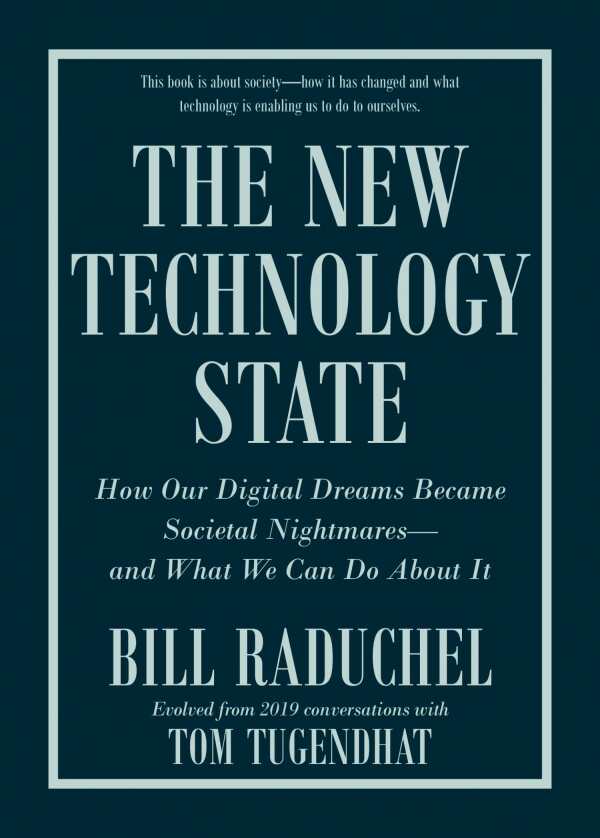The New Technology State
How Our Digital Dreams Became Societal Nightmares—and What We Can Do about It
Combining industry expertise with academic rigor, The New Technology State is an informed book that argues for taking a more critical stance toward technology.
Part history, part call to action, technology executive Bill Raduchel’s book The New Technology State is provocative in discussing the perils of rapid technological advancement.
Addressing three looming contemporary problems—the concentration of wealth with a powerful elite, the fragility of globalized economies, and the polarization of political societies—the book attributes them to the unprecedented speed of modern technological progress. It argues that technological inventions including email, social media, smartphones, algorithm-guided news, and advertising definitionally altered the world. While it proposes a society-wide confrontation of such issues, it also warns that efforts to enforce anachronistic economic and social principles only exacerbate problems: “Our 250-year-old neoclassical economics ideology is simply obsolete.”
Leaning on the work of John Kenneth Galbraith, Raduchel defines the New Technology State through a genealogy of modern technology that emphasizes how it has infused and reconfigured each aspect of human life––from casual communication and dating to politics, international trade, and war. Its chapters rotate through explorations of big tech companies, historical accounts of technological development, and philosophical analyses of how social values have been impacted and have changed over time. While some chapters deal with more conventional subjects, such as Facebook’s reliance on algorithms to drive profits, others, like an analysis of Google’s popularization of simplistic, context-lacking answers, are novel and thought-provoking.
Practically, Raduchel recommends a bevy of new regulations and taxes to protect existing social and economic systems. Still, this book is less a salve than an accounting of what has already gone wrong. Privacy has been eroded; unifying assumptions, along with the capacity for establishing them, have been undermined; competitive market economies have been consolidated by elite individuals and enormous accumulations of wealth. The prose is charismatic and eloquent, displaying great erudition with its combination of economic laws, social theories, and historical anecdotes. It develops a theory of technology’s impact on society that insists on accounting for the downsides of progress.
The book follows algorithms and the predictive sciences from their ancient beginnings to their revolutionary impact on the present. In its totality, it thus presents a compelling new perspective on modern society. But it also has a tendency to catastrophize and seek out worst-case scenarios, suggesting certain ideological biases. Whether invoking the possibility of World War III or theorizing that major companies now monopolize human talent pools rather than physical resources because only a small percentage of the population is capable of advanced software development, its more extreme theories and predictions are presented without sufficient evidence and grounding. Their shock value draws attention from the book’s less flashy, more thoughtful sections, as with an explanation of the mechanics of stock compensation and how it has added fragility to the global economy. The latter constitute an impressive, stimulating address of technology’s social impacts.
Combining industry expertise with academic rigor, The New Technology State is an informed book that argues for taking a more critical stance toward technology.
Reviewed by
Willem Marx
Disclosure: This article is not an endorsement, but a review. The publisher of this book provided free copies of the book and paid a small fee to have their book reviewed by a professional reviewer. Foreword Reviews and Clarion Reviews make no guarantee that the publisher will receive a positive review. Foreword Magazine, Inc. is disclosing this in accordance with the Federal Trade Commission’s 16 CFR, Part 255.

